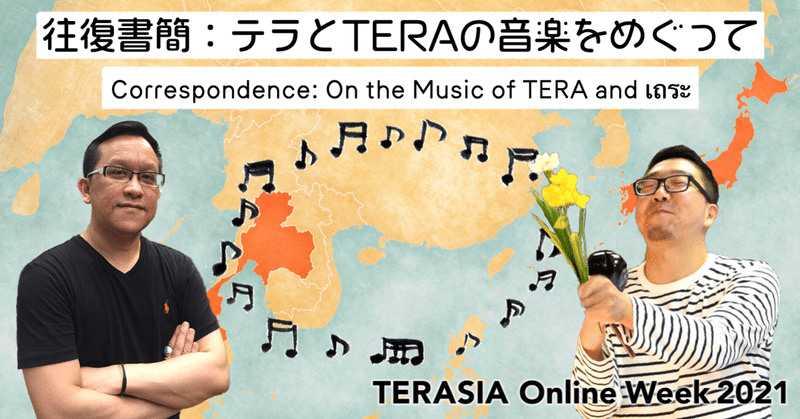
Correspondence: On the Music of TERA and เถระ - 1. The Role of Musicians and "Traditional" Music
by Kyojun Tanaka and Great Lekakul
Kyojun Tanaka and Great Lekakul are both musicians who worked respectively on the Japanese and Thai versions of TERA. As performers and researchers, they exchanged letters online on their musical approaches and the creation process of TERA. In this post, we will present the first two letters of their six-letter correspondence.
Letter No.1 - From Kyojun to Great
Dear Mr. Great,
I’m so grateful for such a wonderful opportunity to talk about the music in TERA Japan & Thailand editions. I hope we can exchange our musical inspirations through the correspondence between us.
I think the musical instruments we used are one of the biggest differences regarding the musical aspect between our TERAs. I used some electrical instruments such as a synthesizer, a sampler, and digital effectors alongside some percussive instruments. On the other hand, you used traditional Thai acoustic instruments. I felt your music was based on traditional Thai music, and with your strong background in traditional music, you had created a fantastic soundscape.
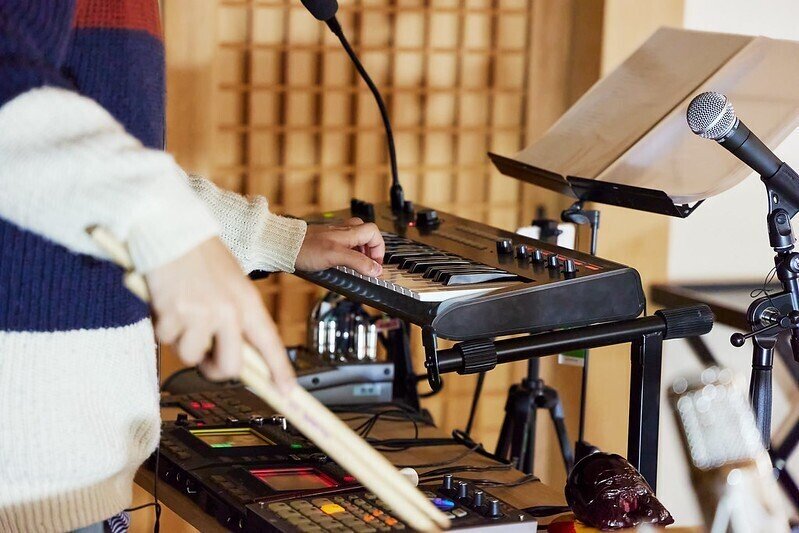
I’m not familiar with traditional Japanese music and instruments. I mainly play Western drum kits and percussions, and there are no Japanese percussions that I played in the Japanese editions of TERA, except for the temple block (wooden fish).
So now I have the following two questions for you:
1. How did the music of Tera Tokyo influence (or not influence) TERA เถระ? How did you decide to use those traditional Thai instruments and that kind of live music?
2. Is some of the music in TERA เถระ actual traditional music? Or did you compose all of them? (I couldn’t recognize whether or not there was some authentic traditional music in TERA เถระ.)
I believe these questions are very interesting even for non-musicians, and they would give us some new perspectives about our TERAs.
Best Regards,
Kyojun TANAKA
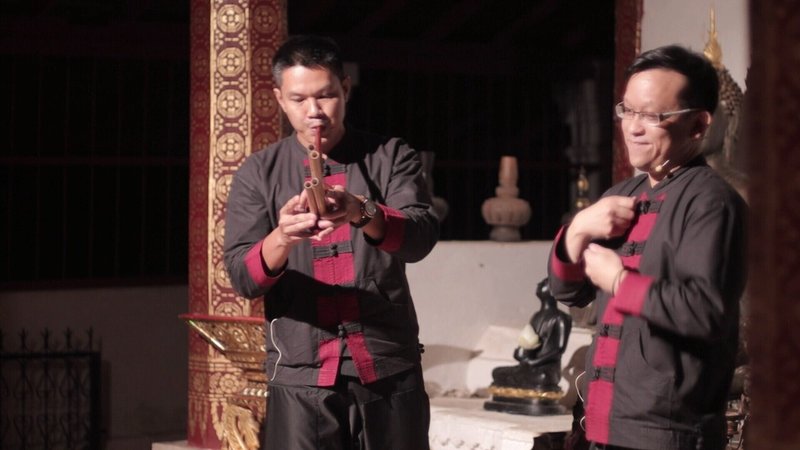

Letter No. 2 - From Great to Kyojun
Dear Kyojun san
I am glad to be part of TERA project with you. Thanks for your questions about our music in TERA Thailand (TERA เถระ).
As for your first question about the influence of the music of Tera Tokyo on TERA เถระ, I think it actually does in some points. I remember, when I first looked at your Tera performance video, I felt that your music become more than the music itself. Not only does your music accompany Miho (Inatsugu)'s performance, but it also becomes one of the characters in your story. I was surprised that you can play the drumkit and percussions at the same time as asking those sophisticated questions to the audience. This made me realise the role of musicians in TERA; that they should be the storyteller and performer rather than accompaniment. So, our music in TERA Thailand became more and more communicated and be the main part of the performance.
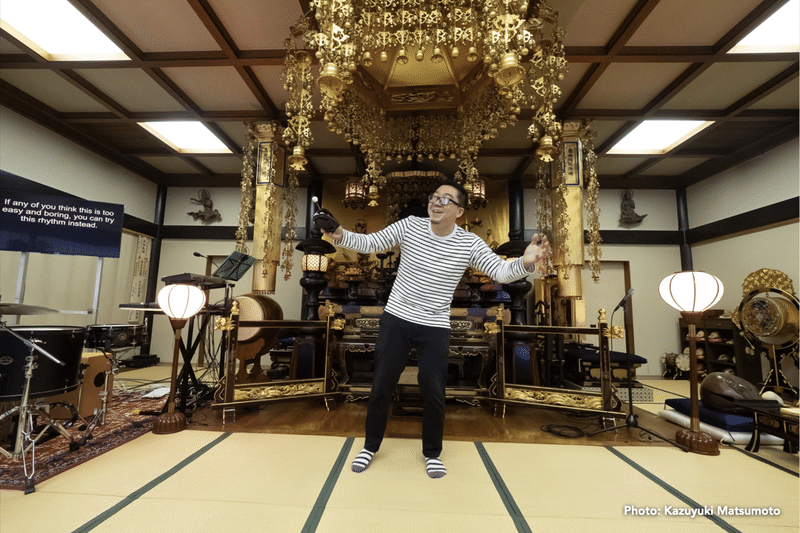
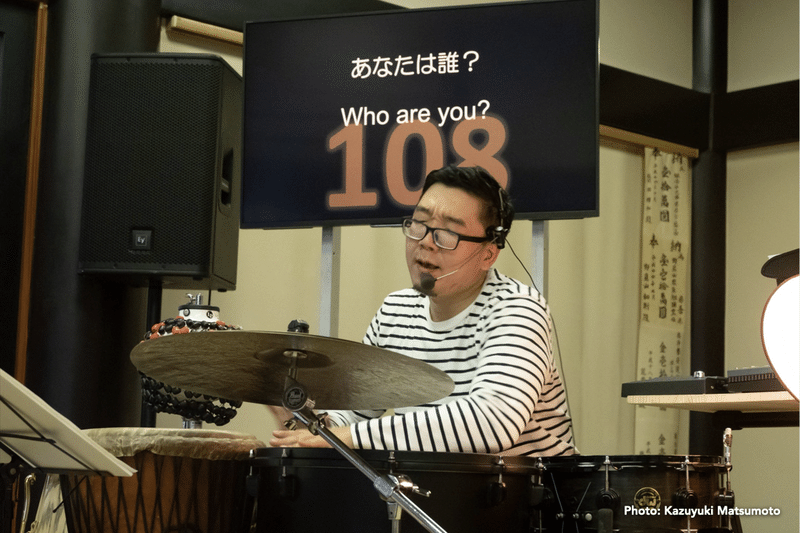
Following your second question, since the main story of our performance is all about Thai temple and religions, we used Thai musical instruments as a base and mixed with other instruments from different cultures (such as shakuhachi and djembe) to describe the journey of actors in different places, such as Lanna or Northern Thailand, India, Japan, etc. Most part of our performance, we composed new pieces of music to accompany the story. We played our Thai musical instruments by using Lanna or Thai, Japanese, Indian, and Persian scales to imitate the sound of Lanna and Sufi cultures and also world music for meditation.
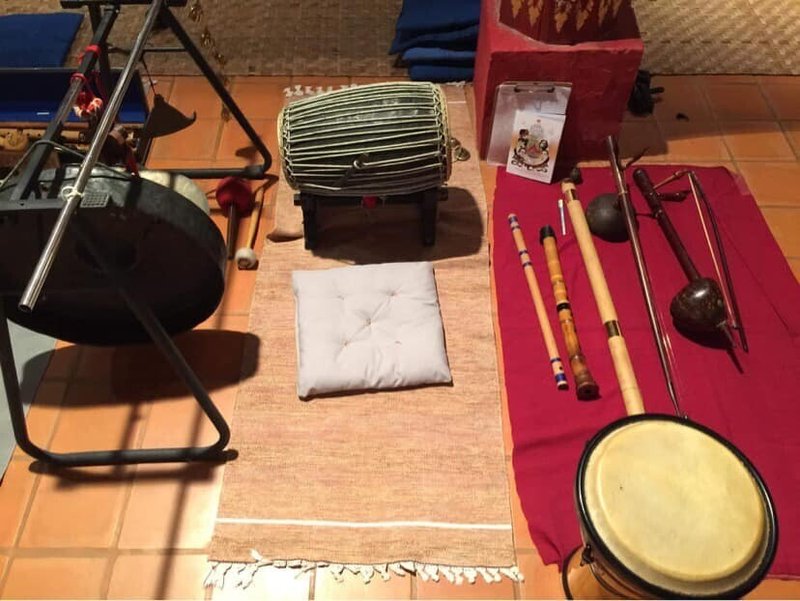
To me, music can represent something that you cannot see but can be felt in the depth of your heart. So, with this approach in mind, the music that we performed in TERA is a vehicle that brings everyone to different places in the world to see the reality of life. So, I think music in TERA Thailand is not only the music of Thailand but music for people.
Great Lekakul
From the questions posed by Kyojun, Great discussed the role of musicians as main performers in TERA, and explained his approach of using traditional Thai instruments to express music from diverse cultures. In the next letters, they will share their views on the relationship between Buddhism and music.
Read the Next Post
Related Programs
Theatre performances TERA in Kyoto and TERA เถระ are available for on-demand streaming from Friday, November 19 until Sunday, December 26, 2021. Please visit the link below for details including ticket information.
* Tickets are available for purchase until Sunday, December 12.
Artist Bios
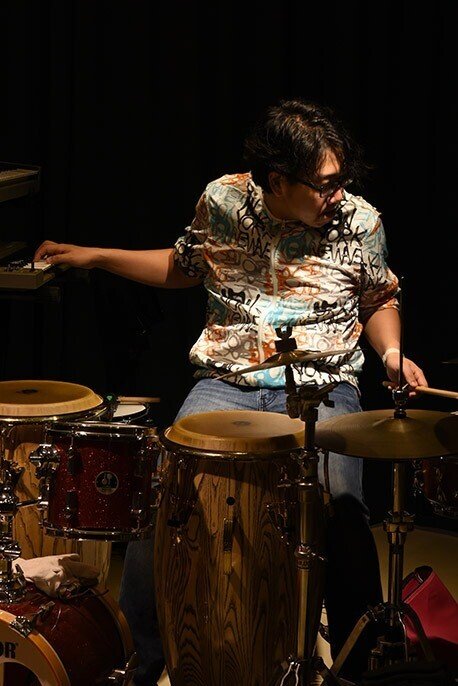
Kyojun Tanaka
Born in Tokyo in 1983, Kyojun Tanaka is a drummer, percussionist, and composer. He started his musical career since he was a student in Tokyo University of the Arts. Following time with the likes of Naruyoshi Kikuchi’s dCprG, he attained his Ph.D., and is currently a rhythm-addicted university staff who travels the world in search of rhythms that make one want to “embrace.” Kyojun performs with his unit MIDOUTEI and the Latin jazz band Septeto Bunga Tropis. He is also engaged in the research and musical training of hsaing waing at the National University of Arts and Culture in Myanmar. “Tera” (2018) was his first participation in Yukari Sakata’s works, and he also performed in its shows in Tunisia (2019).
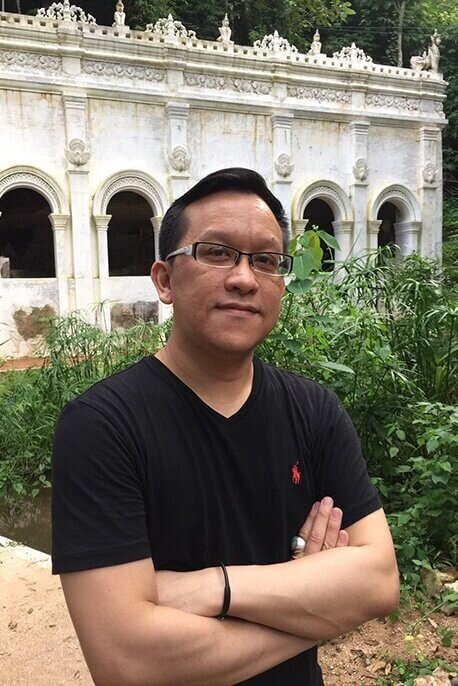
Great Lekakul
After graduating in music from Mahidol University, Great lectured in Japan at Kanda International Language Studies University, teaching music and religions in South East Asia and Thai music performances. Afterward, he studied for his doctorate at SOAS, the University of London in Ethnomusicology. After his graduation, he became a lecturer at SOAS.
With his specialties in Thai and experimental music, he became a member of Korphai, the renowned contemporary Thai music band since 2000. He also co-produced the musical soundtrack of Homrong films on Thai music in 2004. He also got selected as the Thai musicians representative to perform in the Asia Traditional Music Orchestra in Seoul, South Korea. In 2019 he produced and performed his music in Mahajanaka performing arts, highlighting the Buddha’s past life, with Pichet Kluncheun, which was performed in various cities in the UK.
Currently, he is the permanent lecturer in Performing Arts at Chiang Mai University.
頂いたサポートは、打ち合わせ時のコーヒー代として、私たちの創作活動の励みとなります。 Your support supplies our team with an extra cup of coffee to boost creative energies. Thank you!
